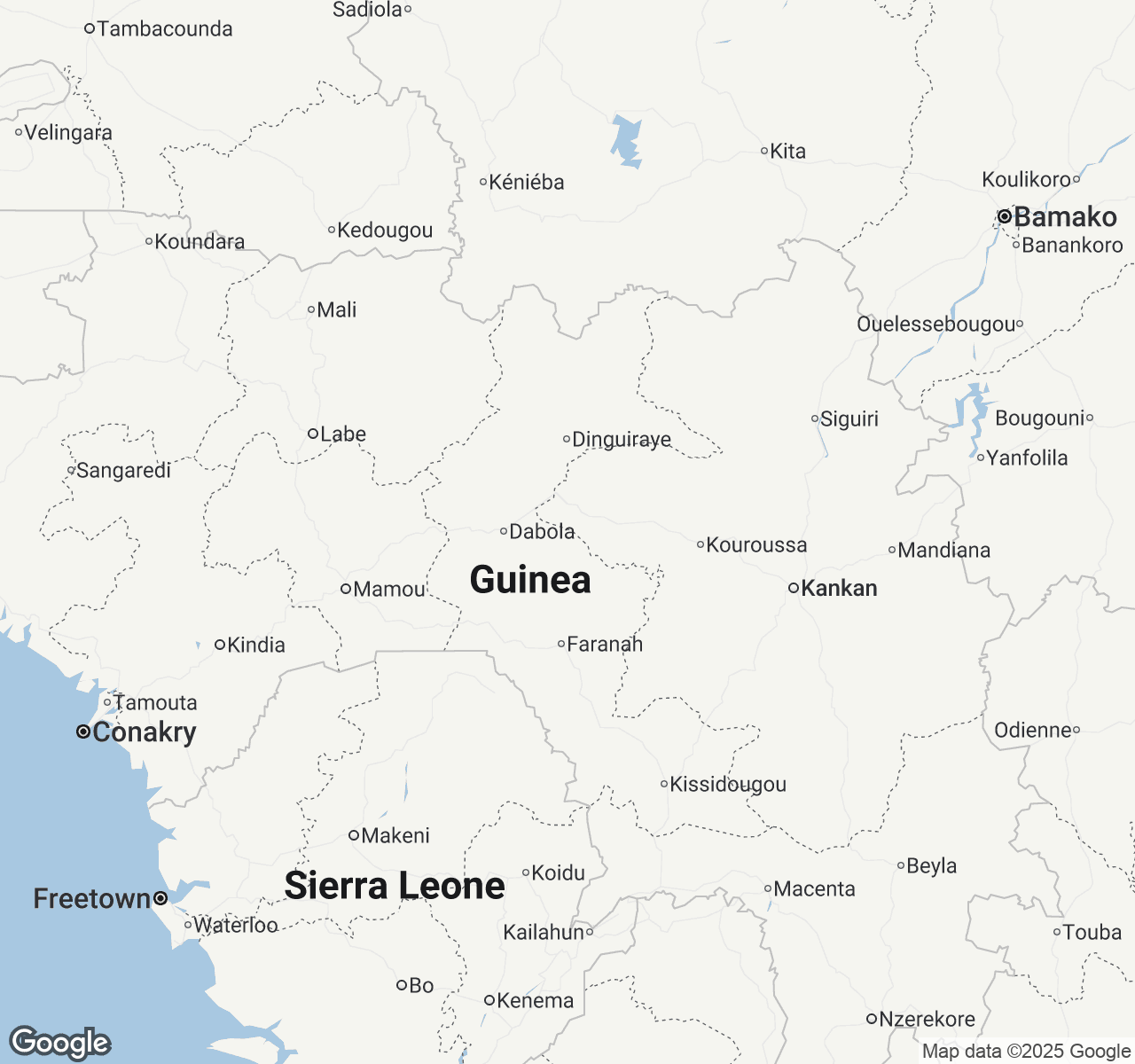
Things to Do in Guinea
Discover the best of Guinea
Plan Your Trip
Essential guides for timing and budgeting
Top Things to Do in Guinea
Discover the best activities and experiences. Book now with our trusted partners and enjoy hassle-free adventures.
Your Guide to Guinea
About Guinea
Where the mighty Niger River begins its epic journey and ancient rhythms still pulse through vibrant markets, Guinea beckons travelers seeking authentic West African experiences. This hidden gem, often overlooked in favor of its neighbors, offers a tapestry of landscapes from the lush Fouta Djallon highlands to the pristine beaches of the Atlantic coast. In Conakry's bustling streets, the intoxicating sounds of djembe drums blend with calls to prayer, while traditional villages in the interior maintain customs unchanged for generations. Guinea's soul reveals itself in unexpected moments: sharing attaya tea ceremonies with locals, witnessing the breathtaking beauty of Mount Nimba's cloud forests, or dancing until dawn at a traditional wedding celebration. This is a land where hospitality runs deeper than cultural obligation—it's a way of life that transforms casual visitors into lifelong friends of Guinea's warm-hearted people.
Travel Tips
Transportation: Hire private drivers or use reputable taxi companies like Alpha Taxi in Conakry. Bush taxis (shared minibuses) connect major towns but expect delays. Domestic flights via Air Guinée serve regional centers. Road conditions deteriorate significantly during rainy season—plan accordingly.
Money: Carry cash in Guinean francs (GNF) as ATMs are scarce outside Conakry. Exchange USD or Euros at official bureaux de change for better rates. Many establishments don't accept cards. Budget approximately 300,000-500,000 GNF daily for mid-range travel.
Cultural Respect: Remove shoes before entering homes and mosques. Use your right hand for greetings and eating. Dress modestly, especially women covering shoulders and knees. During Ramadan, avoid eating/drinking publicly during daylight hours. Always ask permission before photographing people.
Food Safety: Stick to bottled or boiled water and avoid ice. Choose busy restaurants with high turnover for fresher food. Street food like grilled meat and fried plantains are generally safe when hot. Try national dishes like riz sauce and poulet yassa at established local eateries.
When to Visit
Guinea's optimal travel window spans November through April during the dry season, when temperatures range from 25-35°C (77-95°F) and rainfall is minimal. December through February offers the most comfortable conditions with cooler evenings and clear skies—expect peak pricing with accommodations 40-60% higher than off-season rates. March and April bring increasing heat but excellent wildlife viewing opportunities. The rainy season (May-October) transforms the landscape into lush green paradise but brings challenging travel conditions. July-September sees heaviest rainfall (200-400mm monthly) and temperatures around 22-30°C (72-86°F). However, this period offers 30-50% savings on accommodations and fewer crowds. Key festivals include Tabaski (Islamic holiday, dates vary), Independence Day celebrations (October 2nd), and traditional harvest festivals in rural areas (November-December). The Conakry International Festival typically occurs in December, featuring renowned African musicians. Adventure travelers might prefer late dry season (March-April) for hiking in Fouta Djallon, while cultural enthusiasts should visit during festival season (November-January). Beach lovers will find optimal conditions December through March with calm seas and minimal rainfall along the Atlantic coast.

Guinea location map